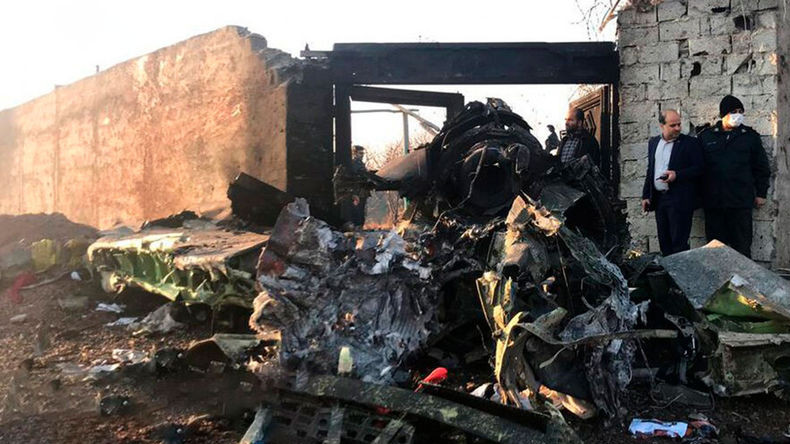
Iran investigation says airliner caught fire before crash, Ukraine outlines theories
Ukraine outlined four potential scenarios on Thursday to explain the deadly crash of one of its airliners in Iran, including a missile strike and terrorism, as Iranian investigators said the plane was on fire before it fell to the ground, Reuters reported.
Kiev said its investigators wanted to search the site of Wednesday’s crash southwest of Tehran for possible debris of a Russian-made missile used by Iran’s military. An initial report by Iran’s civil aviation organization said the plane had experienced an unspecified technical problem.
The Ukrainian International Airlines Boeing 737-800, flying to Kiev and carrying mostly Iranians and Iranian-Canadians, crashed shortly after taking off from Tehran’s Imam Khomeini airport, killing all 176 people on board.
The Iranian report cited witnesses on the ground and in a passing aircraft flying at high altitude as saying the plane was on fire while still aloft.
It said the three-year-old airliner, which had its last scheduled maintenance on Monday, encountered a technical problem shortly after take-off and started to head toward a nearby airport before it crashed. The report said there was no radio communication from the pilot and that the aircraft disappeared from radar at 8,000 feet (2,440 m).
It is so far unclear if any technical issue could be related to a maintenance fault or defective part.
The disaster puts a renewed spotlight on Boeing, which faces a safety crisis over a different type of 737, though the plane that crashed in Iran does not have the feature thought to have caused crashes of the grounded 737 MAX.
The Iranian report referred to the crash as an accident.
Investigations into airliner crashes are complex, requiring regulators, experts and companies across several international jurisdictions to work together. It can take months to fully determine the cause and issuing an initial report within 24 hours is rare.
A Canadian security source told Reuters there was evidence one of the engines had overheated.
The crash happened hours after Iran launched missile attacks on U.S.-led forces in Iraq, leading some to speculate that the plane may have been hit.
The initial assessment of Western intelligence agencies was that the plane had suffered a technical malfunction and had not been brought down by a missile, five security sources — three Americans, one European and the Canadian — who asked not to be named, told Reuters.
Related news
- Ukrainian plane crash victims' relatives demand answers
- No Armenian citizens among Ukrainian plane crash victims – preliminary information
- Armenian FM offers condolences over deadly Ukrainian plane crash in Iran
- Ukrainian Boeing 737 with at least 170 aboard crashes in Iran
Newsfeed
Videos






























